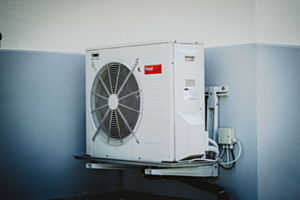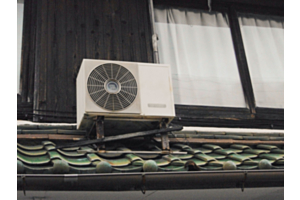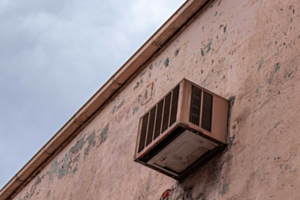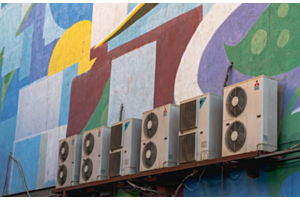How Air Conditioning Changed America

We couldn’t imagine foregoing it now, but there was indeed a time in American society in which air conditioning wasn’t available.
To appreciate air conditioning as it is today, we have to look at its history. AC is attributed to the Ancient Egyptians, who were fans of passive air conditioning. Everywhere from Northern India to the Middle East, North Africa, and the Iberian Peninsula caught on and began using this form of air conditioning to beat the heat.
It’s amazing that passive air conditioning could exist in prehistory at all considering that electricity wasn’t invented until 1752. It wasn’t until the early 1900s that Willis H. Carrier developed what became the prototype of air conditioners as we know them in modernity.
At the time, air conditioning was mostly used in paper and printing plants as well as textile mills to prevent moisture from affecting the products. By the middle of the 1900s, domestic air conditioning spread, with the creation of the window unit in 1931.
It would take nearly 30 more years for homes across America to feature central air conditioning.
How exactly did AC change America? It isn’t all about keeping cool. Data has proven that mortality rates of infants in hot climates were lowered and that birth rates increased during springtime thanks to air conditioning.
People were also able to live longer, healthier lives, as they were at less risk of issues caused by overheating such as dehydration (which can be deadly) or heat stroke.
Then there’s the technological aspect of it. Hospitals and other medical facilities now have temperature-controlled environments for treating patients. Once technology began to grow, computers and other tech that was filling office buildings could be housed in a cool environment to prevent the systems from heating and crashing.
This allowed technology to accelerate at the pace it has today, growing job prospects and benefiting our economy. Between the support of industry and the healthier lives of the American people, air conditioners have had a huge impact on the way people live.
Even today, that’s still the case. Although climate change causes unpredictable temperatures and weather events, knowing that you can rely on your AC at home, at work, and just about anywhere you go does provide peace of mind.
Speaking of the environment, one of the biggest downsides to air conditioner use is the environmental impact. All that refrigerant can deplete the ozone layer, and ACs are rarely gentle on energy consumption.
Ductless mini split systems allow you to enjoy customized cold air but without the energy toll. Each month, you’ll pay less money on your energy bills and know that you’re doing our planet a favor too. It doesn’t get any better!
We hope you enjoyed this fascinating glimpse into the history of air conditioning. The next time you turn your AC on, you’ll certainly have more gratitude for how far air conditioning has come.
Sources:






